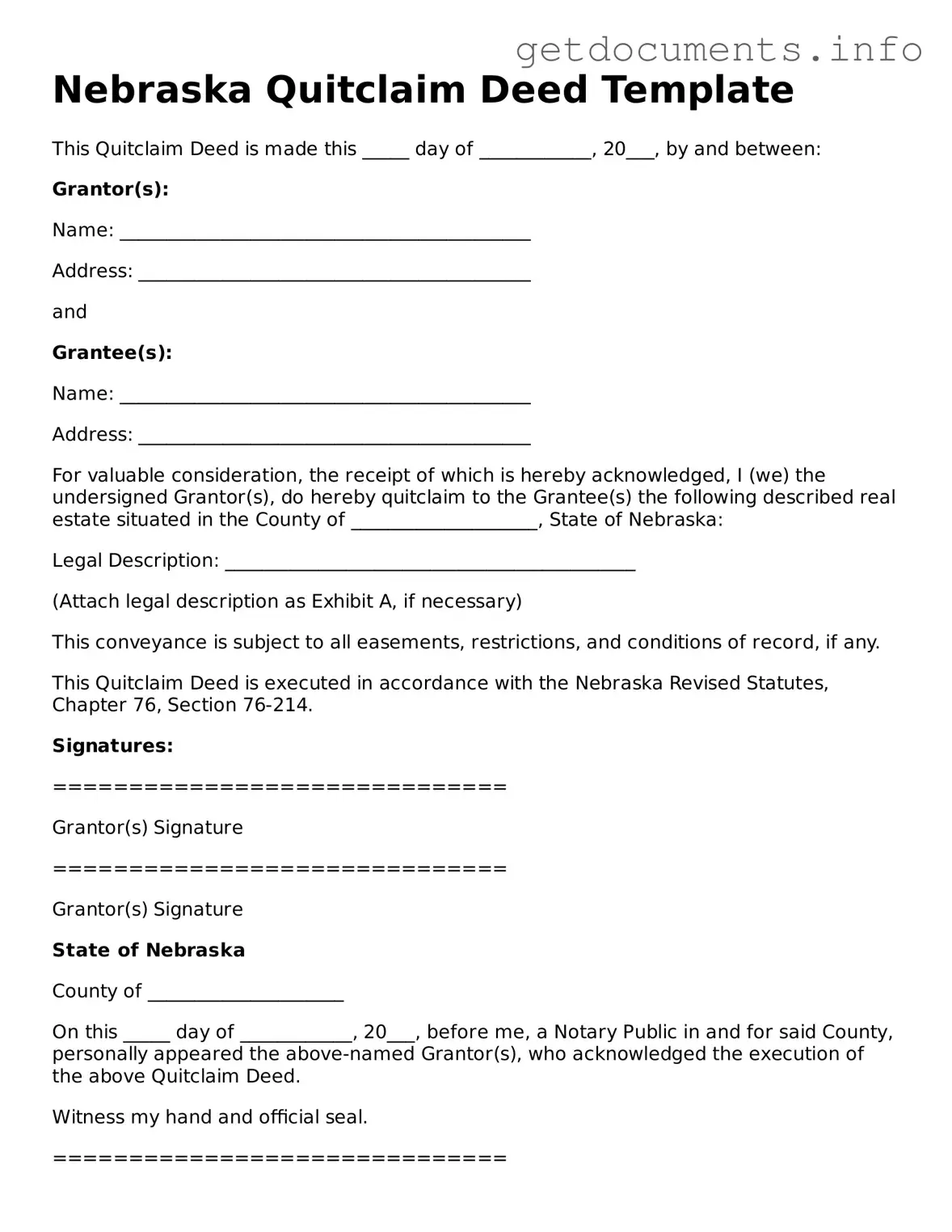Free Quitclaim Deed Template for Nebraska
A Nebraska Quitclaim Deed is a legal document used to transfer ownership of real estate from one party to another without any guarantees about the property's title. This form is often utilized in situations where the parties know each other, such as family transfers or settling estates. If you need to fill out a Quitclaim Deed, click the button below to get started.
Access Quitclaim Deed Editor

Free Quitclaim Deed Template for Nebraska
Access Quitclaim Deed Editor
Got places to be? Complete the form fast
Fill out Quitclaim Deed online and avoid printing or scanning.
Access Quitclaim Deed Editor
or
⇩ PDF File
